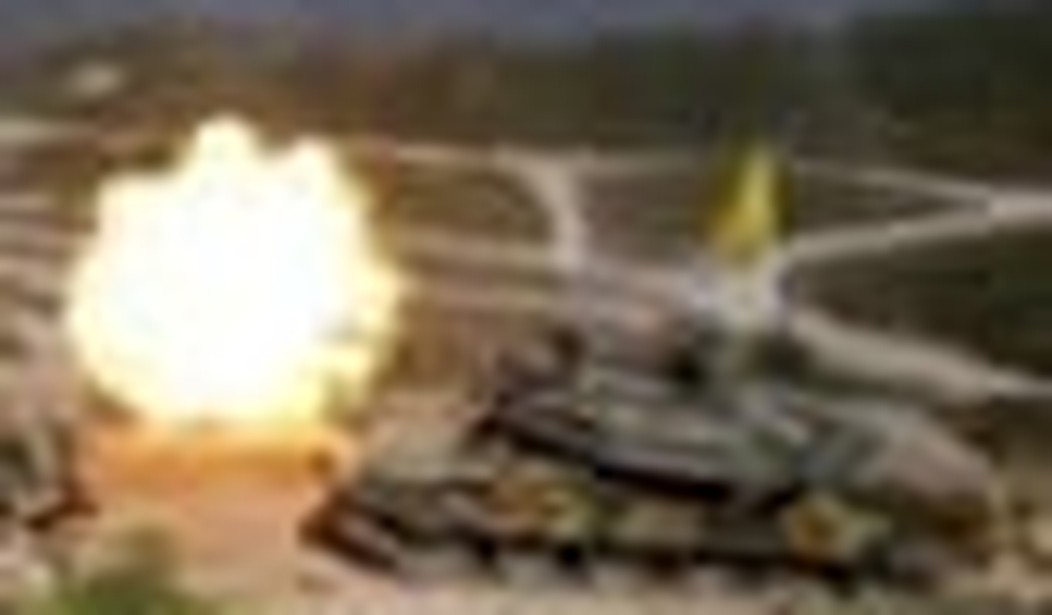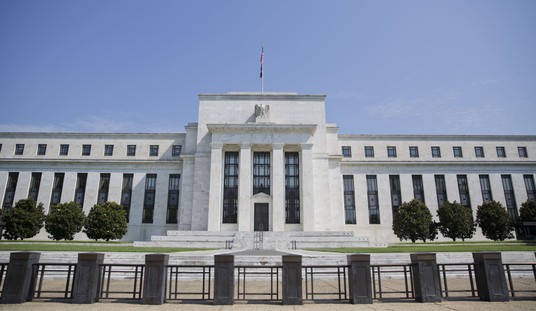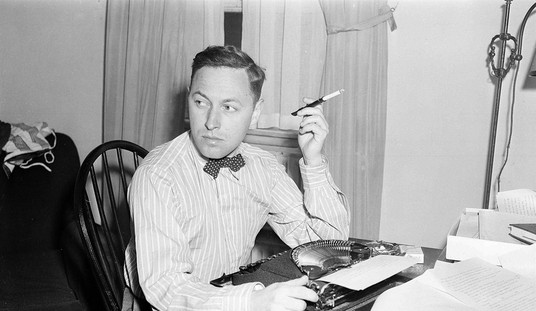Until recently, there had been little new in the northern part of the Korean Peninsula. North Koreans continue to starve, the country begs for food, and the barely fed prisoner-slaves (there are up to 200,000 political prisoners there) grow poppies to make heroin to provide state export revenues of $500 million to one billion annually. According to Bruce Klingner at the Heritage Foundation, “the total for legitimate exports is estimated at around $1 billion annually.” Still, it’s a very cheerful place according to state media, far superior to all countries other than China.
Little light escapes the black hole of the North Korea (the Democratic People’s Republic of Korea, DPRK), but Dear Leader Kim Jong-il has long been a cheerfully despotic narcissist, grandly fed according to his former chef who defected to Japan in 2001 and whose insights into Kim Jong-il are still highly regarded by intelligence officials:
Money was no object when it came to food. Fujimoto made shopping trips
around the world to pick up ingredients – to Iran and Uzbekistan for caviar, to Denmark for pork, to Thailand for mangoes, durians and papayas. On a whim, Kim once sent Fujimoto to pick up a box of his favourite rice cakes, which were scented with mugwort and available only at a department store in Tokyo. Fujimoto later evaluated the trip and put the cost of each bite-size morsel at $120.
Kim’s food is always prepared with consummate skill and devotion:
Before cooking the rice, the kitchen staff would inspect each grain individually and discard any blemished by irregularities of shape or colour. He ate only the choicest foods and loved the fatty cut of tuna known as toro.
Sometimes Fujimoto would prepare sashimi using a trick he had learnt at Tsukiji, slicing so the vital organs were spared and the fish was served writhing on the platter.
Another of Kim Jong-il’s pleasures is his military. They seem quite prosperous and well fed.
The DPRK also readies to celebrate the one hundredth anniversary of the birth of Glorious Founder Kim il-Sung next year when, among other marvels, a “new” hotel is scheduled to open in Pyongyang. Construction began twenty-four years ago but met with “unexpected” delays:
Ryugyong Hotel, a glass tower spanning 105 storeys and rising 1,080 ft high, will partially open in April next year following decades of delays, according to reports.
The long-delayed opening will coincide with the 100th anniversary of the birth of the nation’s founder Kim Il-sung, with celebrations peaking on 15 April. It was in 1987 that the hotel – whose name means Capital of Willows – was first launched with the grandiose ambitions of creating the world’s tallest tower.
Then, the DPRK will enter an unprecedented era of prosperity and its goals for that year will be reached, as of course they must be; it has been decreed that the DPRK will become a great, powerful, and prosperous nation.
And, of course, the DPRK is (as has become customary) simultaneously preparing for more nuclear weapon and missile tests. Its uranium enrichment program seems to have been going well and to be more massive than previously thought. Last November, it shelled Yeonpyeong-do, an island claimed by South Korea (the Republic of Korea, ROK) and occupied by ROK military personnel and civilians.
[youtube=http://www.youtube.com/watch?v=ZcsXT6fL9lE&w=640&h=360]
Despite the things that don’t change much, there are some significant new developments in the current fruit and nut mix.
Recently, the army of the DPRK increased its military capability close to the border with South Korea:
North Korea has recently moved fighter jets near the Northern Limit Line, the de facto maritime border, and ground-to-air missiles close to Baeknyeong Island. There is speculation that it plans a minor provocation while South Korean president Lee Myung-bak visits the U.S. since any show of unity between the two allies tends to incense the North. “The North Korean military was seen moving mobile missile launchers at a ground-to-ship missile base near the NLL,” a government source said. “There’s likelihood that the North will launch a military provocation” while Lee is away. The government is closely watching movements of North Korean artillery units. An intelligence source said, “The North Korean Army is showing movements similar to those seen right before it shelled Yeonpyeong Island last year.”
The ROK has declared a high state of alert. It may have been principally in response to DPRK movements, to the visit of ROK President Lee Myung Bak, to Washington or to both. After President and Mrs. Lee were welcomed at the White House on October 13th, President Lee became the first Korean president to visit the Pentagon, where he and
Defense Minister Kim Kwan-jin, presidential secretary for foreign affairs and national security Chun Young-woo, and secretary for national security strategy Kim Tae-hyo . . . met U.S. Defense Secretary Leon Panetta, Chairman of the Joint Chiefs of Staff Martin Dempsey, and most of the chiefs of the Army, Navy and Air Forces, according to Cheong Wa Dae.
They are said to have received “an unplanned briefing on the security situation on the Korean Peninsula from top military officials,” unrelated to any “special and pending issues.” It is not credible that such a briefing was unplanned and unrelated to pending issues. Is “unplanned” the same as “unexpected”?
The start of the Korean conflict, on June 25, 1950, was “unexpected” and shouldn’t have been; there were plenty of signals but we were not looking. A synopsis of the beginnings of that Korean conflict and the events leading up to it is provided here. Importantly, under President Truman’s Secretary of Defense Louis Johnson, military spending had been cut drastically:
In the early days of the Korean War, the North Korean Army, supplied with Soviet weaponry, was better armed and equipped than were U.S. troops. . . . Johnson made political hay by claiming that he had “cut the fat” from the defense budget. What he really cut was the throats of thousands of American soldiers.
Johnson ceased to be the secretary of Defense soon after the Korean Conflict broke out.
With a weak U.S. president unlikely to be reelected and a host of other foreign and domestic problems to preoccupy us, now would be an excellent time for the DPRK to invade the ROK in full force, probably better than at any previous time. Kim Jong-il almost certainly realizes that. He and his advisers must also realize that the likelihood of crippling U.S. military budget cuts is great. According to Defense Secretary Panetta,
the automatic cuts, part of a last-ditch negotiating move by President Obama and Congress, [were] both “blind” and “mindless.”
He said nearly $500 billion in defense cuts already being imposed are “taking us to the edge.” Another $500 billion would be “truly devastating,” he added.
Even under current cuts, “we’re going to have a smaller force,” Mr. Panetta said.
This apparently doesn’t worry Secretary of State Clinton, who said on October 14th that in this new age the strength of the U.S. is waning, not due to any loss of military power but due to flawed economic policies.
 On October 13th, President Obama warned the DPRK, with the decisive sternness he commonly uses when dealing with dictatorial and dangerous foreign regimes. There was no suggestion of U.S. military involvement. In essence, he asked that the DPRK stop being nasty if it wants more respect, more goodies, and fewer economic sanctions from the international community — of which the United States is no longer a principal, much less the, leader under his presidency. According to the linked report:
On October 13th, President Obama warned the DPRK, with the decisive sternness he commonly uses when dealing with dictatorial and dangerous foreign regimes. There was no suggestion of U.S. military involvement. In essence, he asked that the DPRK stop being nasty if it wants more respect, more goodies, and fewer economic sanctions from the international community — of which the United States is no longer a principal, much less the, leader under his presidency. According to the linked report:
US President Barack Obama warned North Korea . . . that it would face deeper isolation and international pressure if it carried out more “provocations” like those that rattled Asia last year. Obama, standing side-by-side with South Korean Lee President Lee Myung-Bak at the White House, said Pyongyang could however expect greater opportunities if it lived up to its international obligations over its nuclear program. The two leaders discussed North Korea in their White House talks and said they were united in their approach towards Pyongyang. “Together we’ve succeeded in changing the equation with the North by showing that its provocations will be met not with rewards but with even stronger sanctions and isolation,” Obama said. . . . . ” If the North abandons its quest for nuclear weapons and moves towards denuclearization, it will enjoy greater security and opportunity for its people.”
The “opportunity for its people” sought by Dear Leader Kim Jong-il has nothing to do with better security and more opportunity for its people. Why did Obama even mention it? The opportunity sought by Kim Jong-il is for the successful continuation of the dynastic regime under his son, the Brilliant Young General Kim Yong-un, and more of the same old repressive and dangerous stuff. The welfare of the North Korean people is and has long been essentially irrelevant to Kim Jong-il. Only a unicorn could believe otherwise. Despite this, more direct talks to ask the DPRK to promise to denuclearize in exchange for benefits are to begin soon, despite the unlikelihood of success. See the definition of insanity attributed to Einstein.
During the week of October 21st, Panetta will visit Seoul as well as Indonesia and Japan. Presumably the current situation with the DPRK will be among the topics discussed. How about likely U.S. military budget cuts? There must be some sort of a plan about what to do in the event of an invasion from the North. That may or may not happen, but if it does even President Obama would have difficulty calling it unexpected with a straight face. He may have no such expectations, but has most likely received warnings about the chances just as he received, but apparently ignored, warnings about Fast and Furious and Solyndra’s impending bankruptcy.
Does the Obama administration’s response to the (alleged) Iranian attempt to kill the Saudi ambassador in Washington provide any useful hints as to how the president might respond to a North Korean attack on the South? It hasn’t been claimed that the Iranian move was unexpected (or at least that it was unexpected until the need for something for which Obama could claim credit to shift public focus away from Fast and Furious and other debacles became pressing), but the facts seem pretty ambiguous for the moment and the response has been pretty ambiguous as well, according to an article by Barry Rubin. Another article, by Michael Leeden, puts things a bit more bluntly. As noted in Mr. Rubin’s article about prospects for effective action in the current Iranian mess,
Look, this is the Obama administration we are talking about. I don’t think they can do it. Hopefully, the next president can do so. There better be a next president in sight because there are a lot more crises on the way.
An attack on the South by the DPRK may well be one of those incipient crises. According to Mr. Leeden,
So, to answer the often-asked question (how could the leaders of the Iranian regime have approved such a provocative action in this country?): they do not fear us, they do not believe that Obama is capable of doing anything that would threaten their grip on power, and they viewed the operation as both a provocation and a humiliation of him and his administration. So far, the pathetic lack of anything approaching a serious response – not even a hint of support for regime change in Tehran — combined with empty ritualistic incantations a la “nothing is off the table” suggest that their assessment is correct.
So what’s the bottom line? The same as it has been for 32 years. Iran is at war with us. We have yet to respond. . . . The longer we dither, the more ambitious they will become, until one day some president, perhaps even this one, fearful of going down in history as a monumental coward, will take the military option from that tabletop and unleash it, thereby demonstrating the utter failure of decades of American non-policy. [Emphasis added]
These comments should apply with no less force to the situation in Korea. A weak and ambiguous response to a less than substantial DPRK incursion into the ROK would invite another, more substantial, probably quickly. Could the U.S. response then be less than the U.S. response to the “unexpected” June 1950 invasion? If there is a massive invasion, mounting even a proportional military response will be difficult; it was in 1950 when, in anticipation of world peace and tiredness with war, military spending had been cut “to the bone and through the bone.” However, there will be no credible excuse for an ambiguous response to a “surprise” attack.
This article from the New York Times argues, fairly persuasively, that
The United States has too many commitments today to conduct a successful foreign policy. Perpetual crisis management contributes to confusion, waste and overall ineffectiveness. To re-establish focus, the nation needs clear and disciplined priorities. To re-establish leadership, the nation needs the courage to say it will do some things well, while practicing self-restraint everywhere else.
If and when the DPRK invades the ROK, we will need to do something and speeches expressing international displeasure won’t cut it.
The exact figures are not available, but approximately 26,000 U.S. troops (plus dependents and civilian contractors) is probably as reasonable a guesstimate as any. Whatever the number, it will likely be necessary to get more involved militarily, if only to keep them from being killed or captured. Since many of the U.S. forces there are non-combat troops (again, no reliable numbers), more combat troops will probably be needed if only to protect the non-combat troops and American civilians. Where will they come from? Putting them on line and entering even a small war would cost big bucks. Where will they come from? What are the alternatives?
These are very difficult questions, and there are few indications that they are being considered seriously by the Obama administration. If it were thought that they were being considered seriously, it probably would not deter Kim Jong-il. However, it might (or might not) be enough to persuade China to apply some brakes to the DPRK.










Join the conversation as a VIP Member